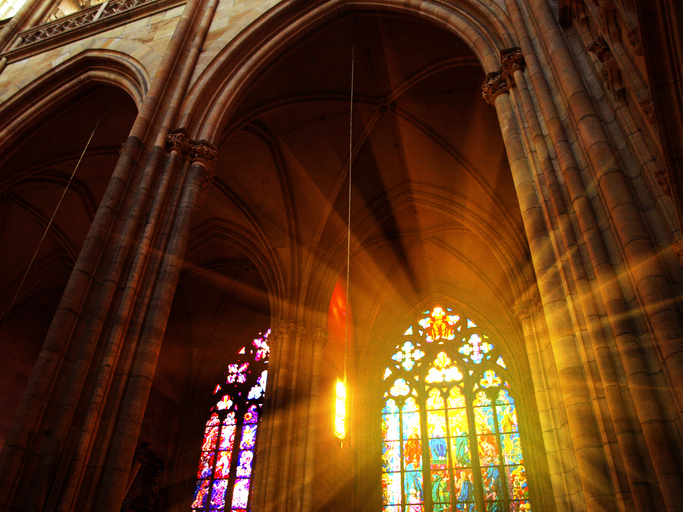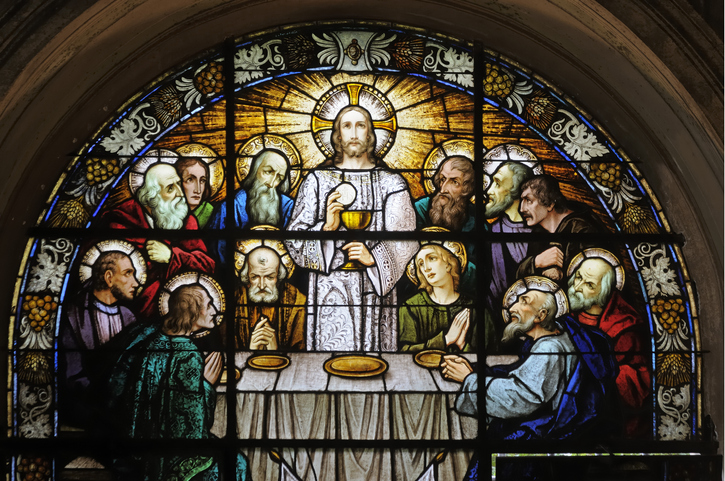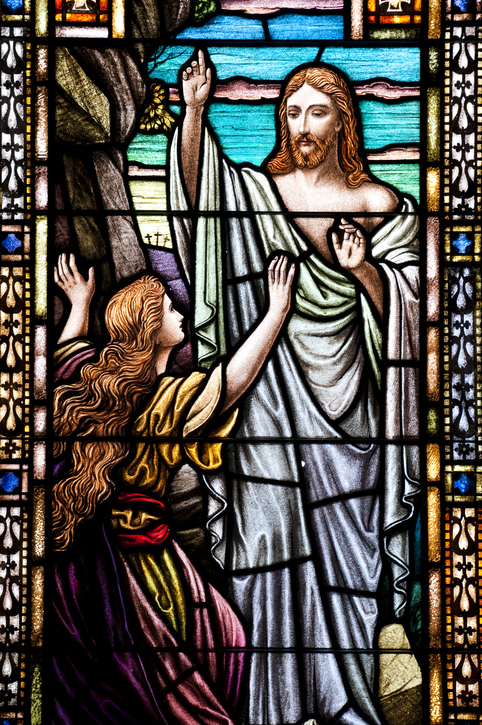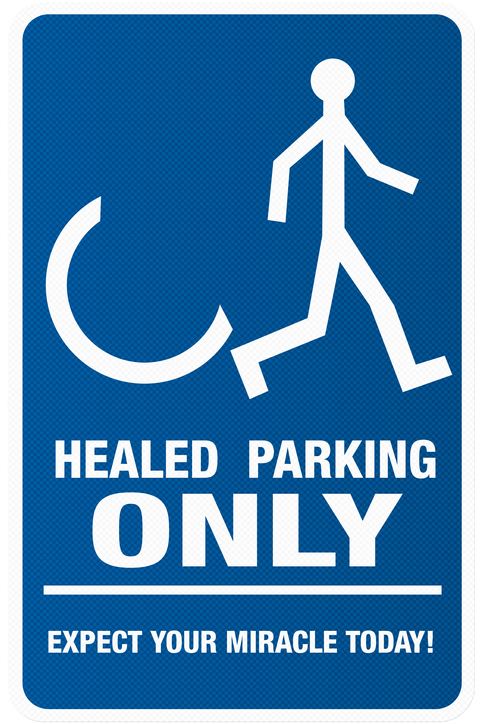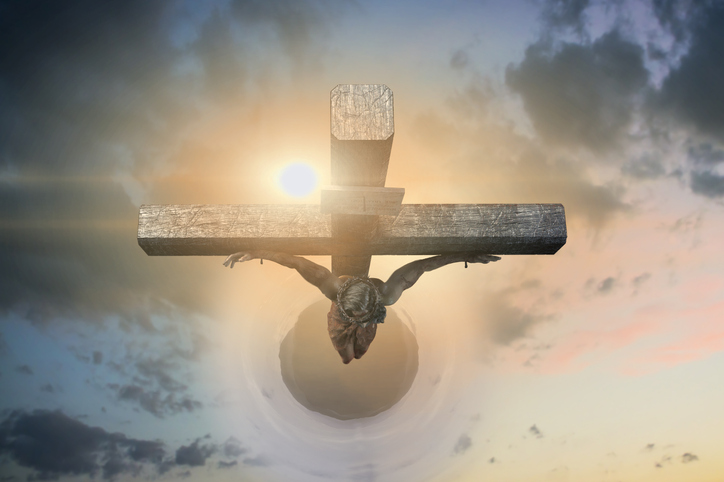As Jesus is preparing to offer himself completely for love of the Father and for us, he takes a moment to prepare his disciples also. He opens their eyes to the truth that his mission is not ending with his death, but is only beginning: the Church is born from his outpouring on the Cross, and the Spirit of truth will be sent to assist the disciples in this ongoing mission.
Jesus warns them now of the difficulties and confusion that will come so that these difficulties and persecutions will not cause them to doubt or second-guess their mission to bring truth – to bring Jesus – to all the world. The “Advocate,” the Spirit of truth, is sent BY Jesus FROM the Father to testify to the truth of Christ. This Spirit remains with the Church throughout time, ensuring that it will remain faithful no matter the circumstances.
History has proven this to be the case. Every kind of human wrong and evil have touched the Church, and yet it remains standing as the beacon of truth: wars, persecutions, heresy, greed, confusion, sin; all of these have had their grip on the members of the Church and hierarchy throughout history, and yet the Church has never succumbed. Never has the Church made an official declaration (ex cathedra) that is not true.
Never has the line of succession from the Apostles themselves been broken. Through all the failures and confusions of the fallen humans that make up the Church, the Bride of Christ has continued to bear the Good News of Jesus Christ to the world, and transform cultures. This can only be the work of grace, the gift of the Spirit.
From the preservation of literacy in Western Europe after the fall of the Roman Empire to the founding of universities; from the great art Christianity has inspired to the sacred music of composers like Vivaldi, Mozart, and Beethoven; from the elevation of women and protection of widows in ancient society to the valuing of all human life, including orphans; from the contributions to the legal system to the commitment to opposition to any form of racial or ethnic segregation or prejudice; from the staggering contributions of the Jesuits to science to the heart-rending charity of the Missionaries of Charity to the sick and the poor; the Church has brought the light of Christ and the creativity and freedom of the Spirit to every human endeavor.
Disciples are sent to bring truth to the world. This does not happen only in organizations or saints or systems. It happens every day through each one of us. Each day, we walk in the newness of the Spirit, we walk with Christ, we walk as children of the Father, bringing God’s light to every darkened place. Where is God sending each of us to gently challenge with His light and peace today!

Kathryn Mulderink, MA, is married to Robert, Station Manager for Holy Family Radio. Together they have seven children (including newly ordained Father Rob and seminarian Luke ;-), and two grandchildren. She is a Secular Discalced Carmelite and has published five books and many articles. Over the last 25 years, she has worked as a teacher, headmistress, catechist, Pastoral Associate, and DRE. Currently, she serves the Church as a writer and voice talent for Catholic Radio, by publishing and speaking, and by collaborating with the diocesan Office of Catechesis, various parishes, and other ministries to lead others to encounter Christ and engage their faith. Her website is https://www.kathryntherese.com/.
